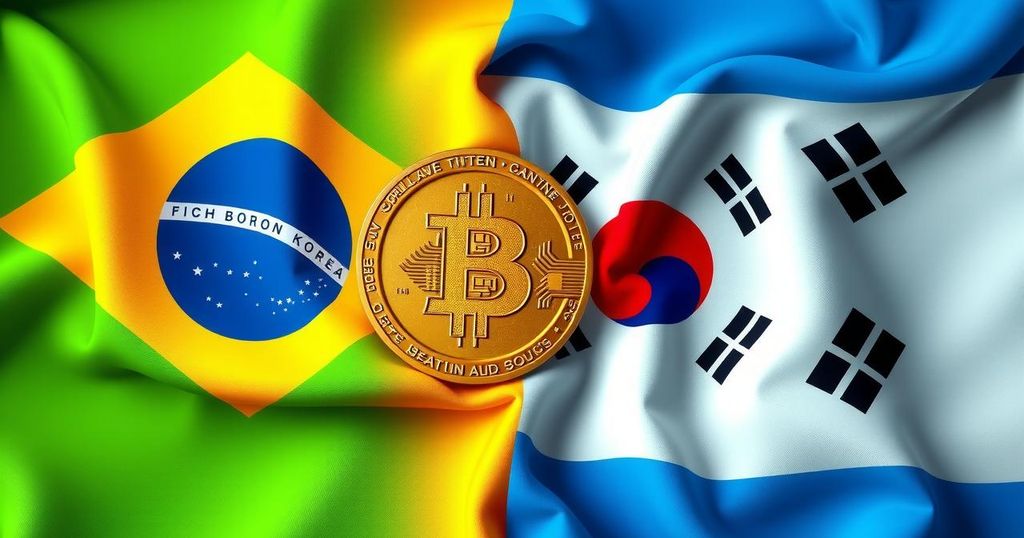Brazil Advocates for Bitcoin Salaries While South Korea Resists Blockchain Integration
Brazil is advancing a bill to allow up to 50% of salaries to be paid in Bitcoin, aiming to modernize its fintech sector. In contrast, South Korea’s central bank is rejecting the idea of including Bitcoin in foreign reserves, citing volatility and risk management issues. This raises questions about Bitcoin’s role as a legitimate financial asset amidst global divisions.
The debate over Bitcoin regulation is intensifying globally, with Brazil and South Korea taking contrasting approaches. In Brazil, lawmakers are advocating for a bill that would permit employees to receive up to 50% of their salaries in Bitcoin. This initiative, introduced by Federal Deputy Luiz Philippe de Orleans e Bragança, is designed to enhance Brazil’s fintech sector and attract cryptocurrency investments, similar to precedents set by Japan, Switzerland, and Portugal.
Conversely, South Korea’s central bank, the Bank of Korea (BOK), is firmly opposed to the idea of incorporating Bitcoin into its foreign exchange reserves. The BOK cites Bitcoin’s notorious volatility and its inability to satisfy the International Monetary Fund’s (IMF) standards concerning liquidity, market, and credit risk management as primary reasons for its stance, as reported by Korea Economic Daily.
The global outlook on Bitcoin varies significantly, with Brazil viewing it as a potential tool for economic modernization, while South Korea remains wary of its financial instability. The BOK has expressed concerns that Bitcoin’s price fluctuations could significantly increase transaction costs when converting it to traditional currency. Nonetheless, adoption of Bitcoin is rapidly progressing in numerous financial sectors worldwide.
The divergence in perspectives raises pertinent questions regarding Bitcoin’s viability as a genuine financial asset. Should Brazil’s proposed bill be approved, it may pave the way for an increase in companies opting to pay their employees in cryptocurrency. On the other hand, countries like South Korea continue to maintain a cautious attitude toward digital currencies.
In conclusion, the debate surrounding Bitcoin’s integration into financial systems reveals a significant division among nations. Brazil is proactive in regulating Bitcoin salaries to stimulate its fintech landscape, while South Korea remains hesitant to embrace Bitcoin due to concerns over its volatility and associated risks. This contrast highlights the ongoing challenges and questions regarding Bitcoin’s legitimacy and potential as a stable financial asset.
Original Source: www.tipranks.com




Post Comment